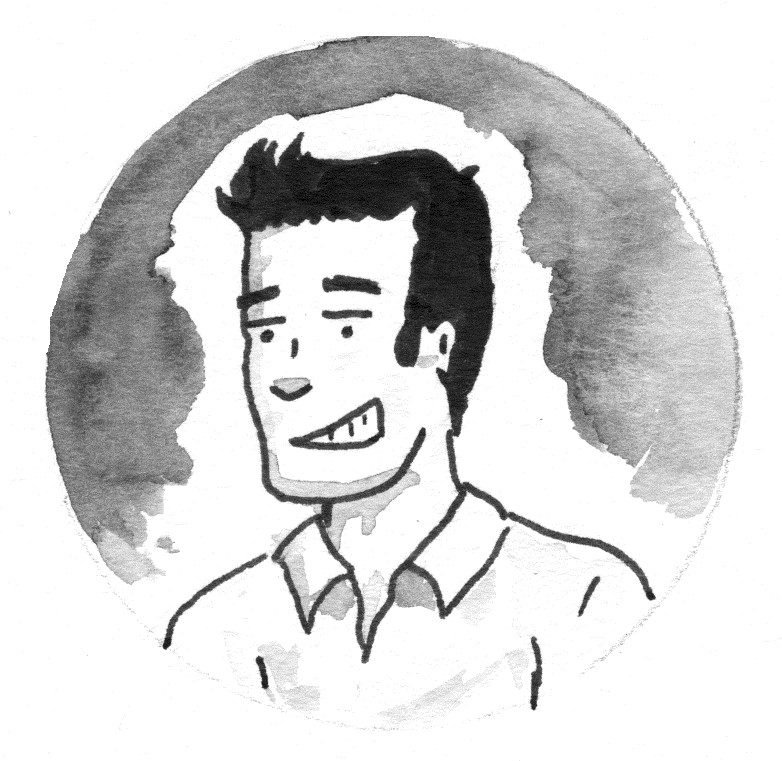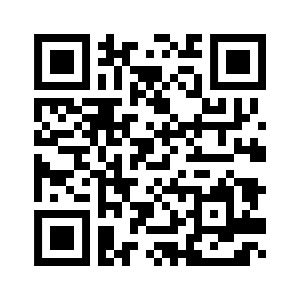Richard had expected the results of his endoscopy to reveal issues ordinary to 40-year-old men whose high-stress financial jobs were their lives and whose meals were too often consumed rapidly and alone before their computers. He figured that his acid reflux and indigestion issues were a part of him now, so he expected the doctor to just give him a pill that was stronger than the over-the-counter stuff and to advise against spicy foods and coffee and alcohol. It was December, though, so Richard was prepared to nod but then ignore the advice and just take the pills and still consume all the holiday garbage and hope for the best.
This was Richard’s understanding of medical visits, that they were like a mix-and-match, pick-and-choose worksheet of behaviors to adopt, medications to try, and you were free to discard what information or suggestions you wanted.
After the endoscopy, Richard awoke from the anesthesia, still foggy-headed and unable to piece together where he was or why a pale, scared-looking nurse was helping him into a wheelchair, rolling him to an examination room, and asking him to dress and wait for a serious debrief. “I was told that we’d go over the results at my follow-up,” Richard said, his head clearing somewhat.
“The doctor decided you need to hear this today,” the nurse said shakily, backing out of the room as if Richard was made of some combustible substance.
Richard shrugged and sighed, calculating the time—hours, by this point—of work time already lost. The endoscopy had been his wife’s idea. “I’m making the appointment for you,” she’d said. “If it wasn’t for me, nobody in this family would ever see the doctor.” So he’d consented to going under, having a tube shoved down his throat so that he could put her at ease, and now he’d be on the laptop all weekend, catching up on emails. Not that Kim or the boys would miss him; whenever he was home, it felt as if they anticipated his movements and scurried out of rooms just before he walked in so that it was always empty wherever he was. When Richard did catch sight of a real live member of his family, popping into the playroom and offering to play a first-person shooter with his son Joey, for instance, or offering to drive his oldest son Taylor to baseball practice, he was met with dismissive comments like “Maybe next time” or “Nah, that’d kill my mojo.” At what age did kids learn the word mojo?
This had been going on for years, it seemed, and secretly, Richard agreed to the endoscopy with the hope that he would be diagnosed with a condition significant enough to fool them into caring about him again. Probably that was a long shot, but at the very least, they’d pat his shoulder, say things like “Good luck” and “We got this.” A sick man couldn’t be blamed for killing mojo.
And hell, it was Christmas. Wasn’t he entitled to a miracle?
*
The doctor arrived after a short while, carrying a manila folder full of photos from the procedure. “A word of caution,” he said to Richard. “This could be shocking.”
“Can’t be any worse than that guy, right?” Richard asked and motioned with his chin to the room across the way, where through an open door, there was a similar-aged man staring at the floor, his wife beside him with her hand on his knee while they awaited the doctor’s arrival. Richard had spent the past fifteen minutes speculating about what had brought others to the gastroenterologist today, and he’d concluded that the guy across the hall was toast. “When the wife comes to hear the news, you know it’s bad,” Richard said.
The doctor frowned. “Would you like to wait for your wife?”
“What? No,” Richard said. “Better to just lay it on me now.”
The doctor nodded and removed a stack of black and white photos from the folder. “This is what your esophagus looks like,” he said, and to Richard’s eyes, it just looked like a slimy water park tube. “Fairly normal, in the first few photos, you see? But then we encountered something out of the ordinary.”
The doctor flipped carefully to the next photo, which revealed a number of small circular objects descending the lining of the esophagus. “Tiny,” the doctor said, “no larger than a few pixels on a computer screen, but there are hundreds of them.” And indeed, there were hundreds, all of them equally sized, equally spaced, as the doctor continued moving through the sequential images that captured the camera’s travels down the esophagus.
“And this is important,” the doctor said, pointing to a thin sketchy line barely visible in the photographs. “A string connecting the bulbs.”
Richard held this last photo up, looking at what was inside him, what was moving and rustling in his throat with his every breath and every swallow. He held the photo at a distance and squinted; the contrast between the bright dots and the dark background seemed dramatic.
“The bulbs are exceptionally bright,” the doctor said as if reading his mind. “It’s rarely necessary to print color photos. “But in this case, we felt it was warranted to further illuminate the condition.”
And when he flipped another photo, Richard now saw his esophagus in full color, a string of joyful and festive blues and greens and reds and yellows, lit as if by electricity even though what the fuck? “Is this a joke?” Richard asked. “Christmas lights in my esophagus? Who put you up to this?”
“I assure you it’s quite serious,” the doctor said. “Uncommon, but quite serious.”
Richard flipped through the photos, quicker now, hoping that the ruse would reveal itself, that the final photo would be a drawing of the Grinch with a word balloon that said “Gotcha!” but the doctor’s tone never changed. “Should we take one of them off? Do a biopsy?” Richard asked. “What am I supposed to do with this information?”
The doctor shook his head sadly. “We can’t take one off without the whole string going dark. We want them to keep working. They’re as essential as your heart or your brain at this point. If they go dark, you go dark.”
“So this is going to be with me forever?”
“It will get worse, I’m afraid,” the doctor said. “Or better, I suppose, depending upon your love of holiday decorations. The lights will get much, much brighter.”
“Brighter?”
“You’re going to be a walking, talking Christmas decoration.”
“But I don’t want to be a holiday decoration!”
“Ah,” the doctor said. “Then it’ll be worse for you.”
“Where’s my wife?” Richard asked finally, fumbling for his cell phone. They’d given him a bag stuffed with the belongings he’d removed before the procedure, his wallet and watch and phone, and he was disappointed when he pressed the power button and found no messages waiting for him. Wasn’t Kim concerned? Not one kissy-face emoji, not one “good luck” or “how did it go?” text. He wanted to leave, and quickly, but he wasn’t allowed to drive so soon after anesthesia; Kim was his ride.
The doctor patted Richard’s knee and told him that he could call a shuttle if his wife didn’t show. “We’ll need the room in fifteen minutes, though,” the doctor said. “Take your time processing this, but not too much time.”
*
Richard was left alone with the photos, and he soon imagined the looks on his co-workers’ faces when he returned to the office. After he revealed his condition, would they ask him to open wide, to say “ahhh!” and one after the next take turns looking down his throat? Would they see the lights? Were they yet visible to the naked eye? If they turned off the overhead fluorescents, would he glow, and what would be the reaction to such a thing? Would the entire office clap, clients and colleagues alike for the first time thrilled by his presence, Richard Miller, the Christmas sensation?
Richard smiled, thinking of it.
Maybe it would be the same at home, too. Maybe now he would walk into a room, and Kim and Taylor and Joey would actually stick around, and they’d turn off the lights and watch his throat and his body glow, and their faces would be filled with wonder like when they were little and he brought out the birthday cake and everyone hushed in the darkness as he lit the candles.
Maybe this was the Christmas miracle he was hoping for. Once upon a time, after all, Taylor had delighted in helping Richard set up Christmas decorations throughout the house. The child had his own miniature tree in his bedroom and stole random household objects to hang on its branches: wine charms, napkin rings, bows ripped from presents under the living room tree. Years ago, Richard had promised Taylor that they would hang the outdoor lights together as soon as Taylor turned twelve, and back then, that had seemed so far away, but now Richard realized that Taylor was thirteen already and rarely rose from his PlayStation when Richard came home from work, let alone showed interest in decorating.
A walking talking Christmas decoration, the doctor had said.
This would change the way they saw him, the way everyone saw him.
When Kim finally showed to pick Richard up, the doctor was out to lunch, and so Richard was forced to explain the condition without a credible source to verify what certainly sounded like bullshit. “Lights inside your body?” Kim asked and laughed. “I guess that explains why you can’t tan.”
“No, it’s a real thing,” he said. “And I think this could be good. Don’t you think this could be good?”
“As long as the lights don’t keep me up at night,” Kim said.
Richard left the gastroenterologist’s office feeling unexpectedly hopeful. Christmas lights were at least something that he understood. Kim’s reaction had not been ideal, but she wasn’t wrong: the lights did explain his inability to tan. They also explained the undying heat in his torso and neck and the jingling noise when he cleared his throat. How satisfying to have a condition that explained all of his ailments! After all, what even was gastritis or IBS or any of the other acronyms he’d read off the internet, and that had frustrating sometimes-this-and-sometimes-that symptoms and futile flow charts of ineffective solutions? Christmas lights were a thing, a physical thing. They made sense. He’d decorated his house for years. How tough could this be?
*
“We can put you right here,” Kim said when they returned home.
“Here? Outside?” Richard asked. Kim was pointing to a bare patch of mulch in their front bed, bordered on both sides by short palm trees.
“It’s gotten brighter just since we left the doctor,” she said. “How are we supposed to watch TV? The glare, Richard.”
“I could go in the other room,” Richard said. “I don’t need to be in the dirt.”
“No, I like this better. Out here, it just goes well, don’t you think?” She stepped back, appraising their outdoor decorations, the lights hung from the roof’s edge, the inflatable Snoopy. He didn’t want to admit it, but something was definitely missing in the exact spot she’d picked for him.
“I just don’t know if that’s really the way to think about my condition,” Richard said. “You don’t want me inside with you all?”
“We have the icicle lights up high,” Kim said. “The net lights over the hedges. If you stay here,” she positioned him just so, “you bring the whole yard together. Don’t you want that? To contribute to our family, Richard, to not just be a fixture on our holiday card that’s never around in real life? You’re always promising us that you’ll be around more, that you’ll take the kids to school or practice. No, right here,” she said. “That way, you won’t block the light-up candy canes.”
“I do still have to go to work,” Richard said. “I can’t just…”
“You can go, like always. And when you get home, you have your spot. Your laptop should still get Wi-Fi from this distance if you want to keep working at night. And now, no one will mind, either. I think this is right, Richard. No, I’m sure of it.”
Richard looked around at the mound of mulch that Kim had chosen as his home for the remainder of the month. He sighed and held up his hands as if wounded, but they’d see him out here, at least. The boys. Out here, he would shine, and they would peek out the windows and point and smile, and maybe he would be allowed to break character and smile back. He was unavoidable, essential, even. Maybe they would even come out each night, and they’d all share hot cocoa or something, and it would feel like a real family gathering, and everyone in the neighborhood would see it. Maybe Kim would buy peppermint bark and feed it to him while he pretended to be immobile, and it could be sensual, and they could regain something that had long ago left them.
“Can you make sure I see the kids?” Richard asked, but Kim was already inside.
The days and nights passed, and Richard watched the cars pull in and out of the neighborhood, Christmas parties somewhere down the block, but still no front yard gatherings with Dad. Frequently, Richard dozed and awoke with spiderwebs strung from his shoulder to the palm fronds, and he tried to swat them away, but his arms felt heavy, so he mostly let them stay. He wanted to go inside, to grab everyone and bring them out. He had a condition, and he was contributing now, damn it, and he wanted his family, but he needed them to come out here on their own.
In the days before Christmas, Richard grew so bright that he almost felt guilty for the light he was inflicting upon the street, but what could he do? His body felt stiffer, too, and eventually, he sat down and stared ahead and stopped trying to move, his limbs hardened and plastic. A serious condition, the doctor had said, but he hadn’t revealed the progression, what was next, how it would end. Brighter and brighter, until he exploded? Or just until one light blinked out, and then he faded away?
When his family did come out to join him, Richard hadn’t expected it to be after New Year’s, and to feel himself lifted, hauled up a ladder, and deposited into a corner of the attic with all the other lights and decorations in this hot dark space, the wreaths and the deflated inflatables and the tubs of ornaments. “Oh, nice,” Kim said when she turned off the attic lights and the space remained bright. “Guess we can save on electricity.”
Richard tried to convince himself that it wasn’t so bad. He tried to do the math, to figure out how many months and how many days until he saw them all again.
It wasn’t so bad. It wasn’t so bad. Christmas season did, after all, seem to start earlier each year.
About the Author
 Nathan Holic is the author of Bright Lights, Medium-Sized City, a not-so-medium-sized novel from Burrow Press. He is also the author of The Things I Don’t See (a tiny but awesome novella, from Main Street Rag),and American Fraternity Man (a big big (yet equally awesome) novel, from Beating Windward Press), and is the Graphic Narrative Editor at The Florida Review. His traditional-text fiction has been published in The Portland Review, Iron Horse, and The Apalachee Review, but he also creates comics, some of which have been published in Booth, Saw Palm, Bridge Eight, and Redivider.
Nathan Holic is the author of Bright Lights, Medium-Sized City, a not-so-medium-sized novel from Burrow Press. He is also the author of The Things I Don’t See (a tiny but awesome novella, from Main Street Rag),and American Fraternity Man (a big big (yet equally awesome) novel, from Beating Windward Press), and is the Graphic Narrative Editor at The Florida Review. His traditional-text fiction has been published in The Portland Review, Iron Horse, and The Apalachee Review, but he also creates comics, some of which have been published in Booth, Saw Palm, Bridge Eight, and Redivider.
nathanholic.com, Insta: @therealnathanholic
![]()






